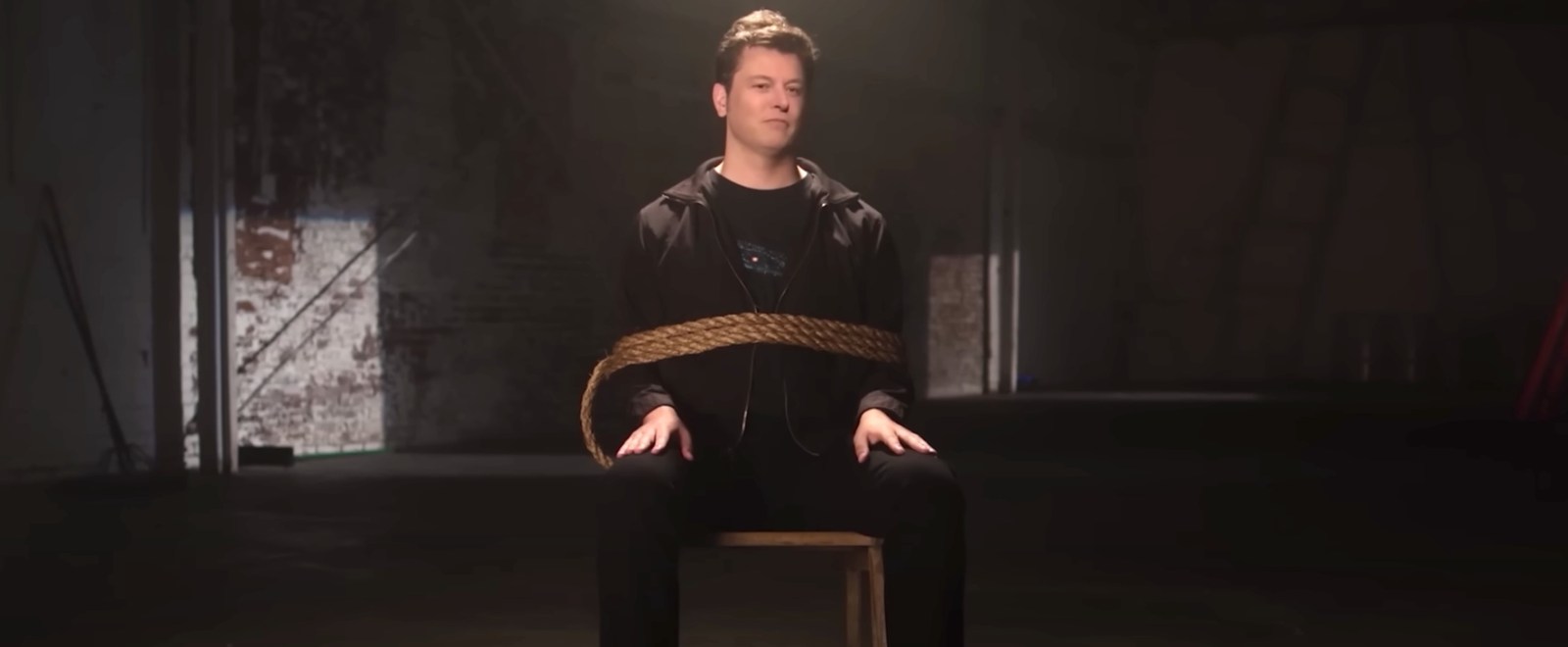If you’ve ever wanted to see Elon Musk tied to a chair in an abandoned warehouse, you are probably not alone in that. But would you ever actually create a video of Musk and his likeness in order to fulfill said daydream? No! But you don’t have to, because a company already did that apparently, which opens up a whole new terrifying conversation.
An investment startup called reAlpha Tech Corps has been putting out a series of perplexing videos featuring a person who looks very much like Elon Musk if you stretched his face into a $16.99 silicone Halloween mask at Spirit Halloween and then ran it through a pasta machine. Of course, he didn’t actually star in this ad, but their YouTube channel features two videos of “Elon,” including one of him in a bubble bath that nobody should ever have to see. This is a DeepFake, or a digitally imposed image featuring the likeness of someone else over another person’s being. And it’s scary!
According to a new report from The Wall Street Journal, these DeepFake videos are becoming popular among small companies that don’t have the budget to actually hire a real celebrity. So they just superimpose a famous face on someone else instead! That’s totally fine, and the Black Mirror writers are going to eat this up. But it’s also opening up the possibilities for much worse.
“Deepfake technology does have the potential to be extremely harmful,” said Dayne Biggs, owner of Slack Shack Films, who produced the viral Musk video. “We are always careful that what we are creating is not damaging or deceitful, but an entertaining and fun way to share a message.” Earlier this year, there were rumors that Bruce Willis had sold his image to a DeepFake company in order to keep churning out films, though that turned out to be false. But the technology is getting there!
This technology is new-ish, so it’s easy to see when something is obviously edited. But that doesn’t mean it’s any less popular, or that more companies won’t use this to their advantage to confuse all of your distant relatives on Facebook. Average, everyday citizens are even jumping in on the action, fooling everyone on the internet into thinking they are the likes of Tom Cruise or Titanic-era Leonardo Dicaprio on a grown man’s body. And you have to be the one to explain to your second cousin Martha that it’s not actually Elon Musk in the low-budget ads (assuming they even know who he is at all).
The future of the new technology is up in the air, but WSJ claims that as it gets more advanced, Hollywood will have to adapt, either by stopping it or embracing it:
The language in contracts written years before the technology existed may be vague enough to allow marketers to use existing footage to create new deepfake videos. For this reason, actors, athletes and other celebrities will at some point begin inserting clauses that prohibit any new such use of their likenesses in all commercial contracts they sign.
Experts and practitioners say deepfake technology will become increasingly popular in advertising, because it can help brands and agencies produce more content faster while eliminating many of the expenses involved in production.
The article also adds that though Musk could sue over his likeness, it seems silly for him to waste that time and money over a legal gray area. Whatever happens, please don’t sign away your soul or likeness to a tech company…unless they offer you the right amount of money.

